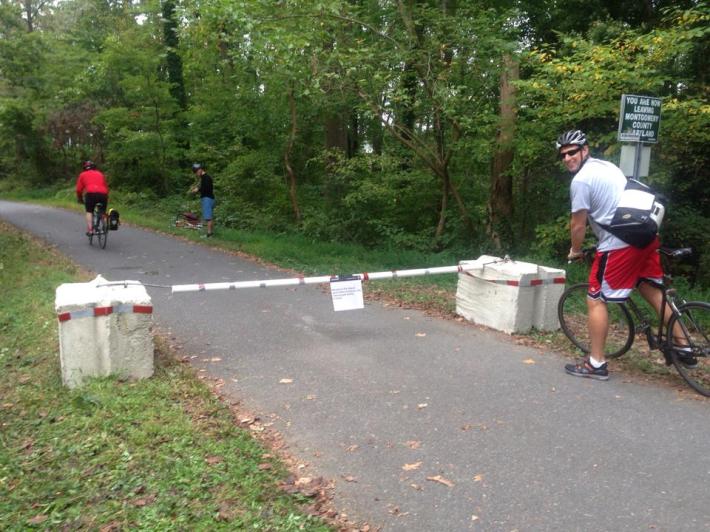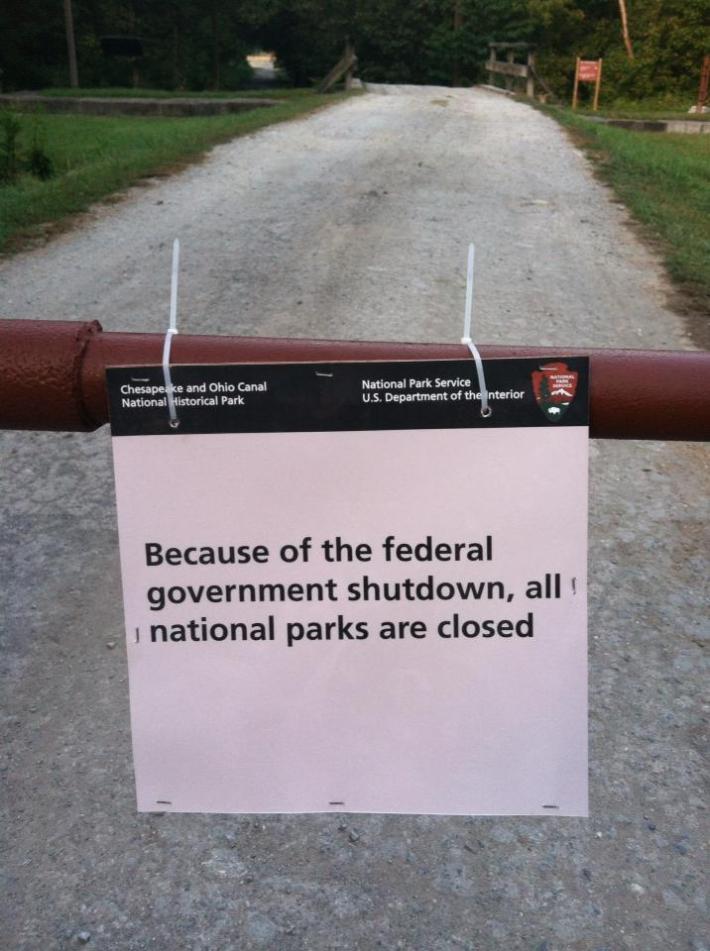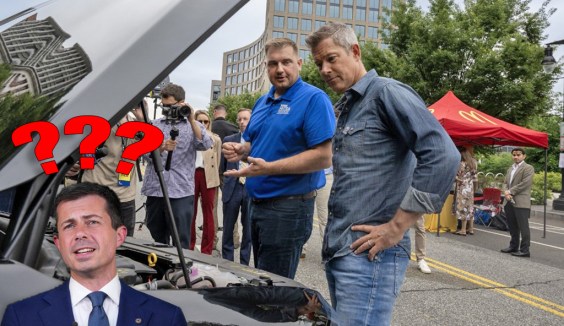
Washington, DC's bicycle commuters woke up this morning to find that one popular rail-trail was closed due to the government shutdown, which took effect at midnight.
The Capital Crescent Trail is the most heavily-used rail-trail in the United States, with more than a million users a year. Not just a weekend pleasure-ride spot, the CCT is thick with bicycles during morning rush hour as people use it as a safer and more pleasant bike-commuting alternative to DC's congested streets. Now, the government would give them no choice -- though the Washington Area Bicyclist Association reports that there's little enforcement and intrepid bike commuters are using the trail despite the barriers.
Since this important bike route is managed by the National Park Service, it is part of the vast collateral damage of the embarrassing scenario unfolding on Capitol Hill. WABA warned yesterday that "all or part of the heavily-commuted Rock Creek Trail, Anacostia Riverwalk Trail, and George Washington Memorial Trail are on NPS property" and could also be shut down, but early reports seem to indicate that they're still open.
The 185-mile C&O Canal trail, which runs from DC's Georgetown neighborhood to Cumberland, Maryland, is also closed.

All roads are open during the government shutdown, except some leading into national parks, which are closed. In DC, this would include Rock Creek Parkway and other roads through the largest urban national park in the country -- but, curiously, that key car-commuter route is still open. However, Rock Creek Park’s Beach Drive is closed to car traffic during the shutdown, so people who enjoy riding their bikes there on weekends, when drivers are normally kept out, will enjoy riding it today. That's one nice trade-off for losing the CCT.
WABA was alerted to the possible Capital Crescent Trail shutdown yesterday, and bollards were put in place at the entrances to prepare to block trail traffic. The sections of the CCT within Montgomery County remain open, since they are owned by the county, not NPS.
DC has a disproportionate number of city parks under NPS, but certainly the shutdown will prevent people from using other popular off-road trails around the country, like this one in the Philly area. Where else are cyclists and pedestrian commuters being impacted?





